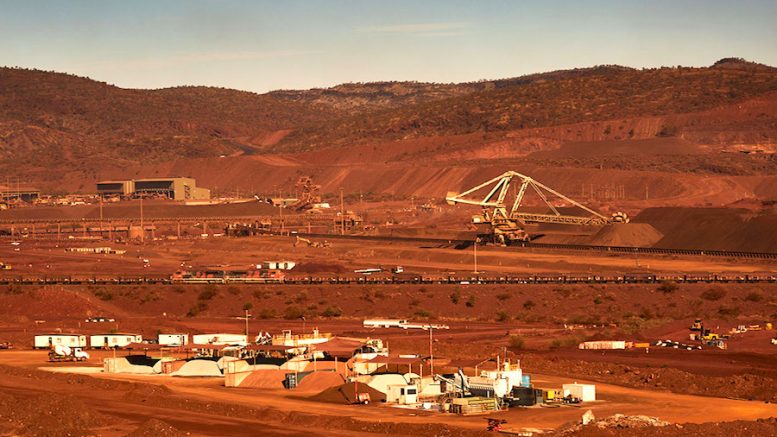BHP (NYSE: BHP; LSE: BHP) has told Australian Aboriginal groups to freely speak their mind about the way it manages cultural heritage as the miner readies to appear before a federal inquiry following Rio Tinto’s (NYSE: RIO; LSE: RIO) destruction of two 46,000-year-old sacred shelters.
Both companies have been criticized for having gag clauses in land agreements preventing traditional owners from publicly objecting to developments.
“BHP has confirmed to traditional owners that it does not regard any term of its agreements with them as preventing them from making public statements about cultural heritage concerns,” it said in the statement. “If any provision in BHP’s agreements can be regarded as having this effect, then BHP will not enforce that clause.”
The Melbourne-based miner also noted it had “strong existing internal processes” in place to ensure that if new information arises that changes the heritage significance of a site, that is taken into account in decisions relating to the place.
Some of the biggest mining projects and railways are located on, or right next to, traditional land of the Banjima people in the iron-ore rich Pilbara region of Western Australia.
Traditional owners, however, are limited by contracts to speak against specific mining activities, the Banjima Native Title Aboriginal Corporation told the Australian government enquiry committee in August.
“The destruction at Juukan Gorge has highlighted the fact that, despite the best of intentions, Indigenous heritage areas lack adequate protection,” Warren Entsch, the chair of the Joint Standing Committee of Northern Australia’s public hearings into the heritage site destruction, said this week.
BHP has government approval to disturb 40 heritage sites as part of a US$3.4 billion expansion of its South Flank iron ore project in Western Australia.
Following a global backlash over Rio Tinto’s decision to blow up the rock shelters, which ended last week with its chief executive officer leaving the company, BHP launched a review of the expansion plans.
“We recognize that what was lost at Juukan Gorge is not only the loss of a site of deep and unique living cultural heritage, but also a loss of trust, not just for the company involved, but with impacts for the entire resource industry,” the company said today.
The South Flank project is expected to create 2,500 construction jobs, more than 600 operational roles and generate opportunities for Western Australian suppliers. The mine is expected to produce iron ore for more than 25 years.
BHP will appear before an Australian parliamentary inquiry into the Rio Tinto incident on Sept 17.





Be the first to comment on "BHP asks traditional owners to voice concerns on cultural heritage sites"